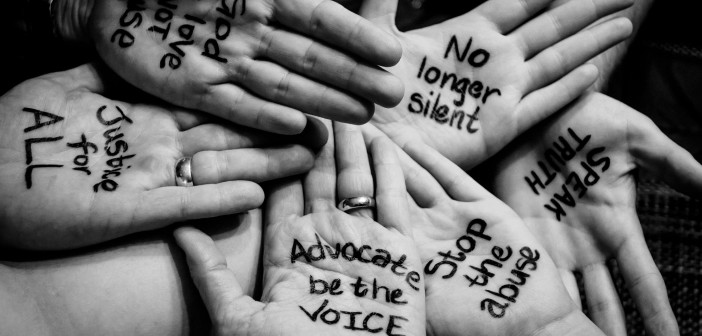Blog
Unmasking the terrifying reality of Postpartum Depression

Motherhood is often depicted as a time of joy and fulfillment, but for many women, it comes with a hidden shadow.
Postpartum depression (PPD) is a silent, insidious condition that strikes when least expected, turning what should be a joyous time into a period of struggle and despair.
Imagine holding your newborn for the first time, expecting an overwhelming sense of love and happiness, only to be met with feelings of sadness, emptiness, and even fear. This is the reality for up to 20% of new mothers who experience postpartum depression. Unlike the common “baby blues,” which typically subside within a couple of weeks, PPD can last for months, stealing precious moments and creating a chasm between mother and child.
Read More:
How postpartum disorders makes mothers kill their babies – Expert
Serena Williams Reveals She Is Suffering From ‘Postpartum Emotions’
Six proven coping mechanisms for postpartum depression
“I Been Emotional All F***ing Day” – Cardi B Talks On Suffering Postpartum Depression
What drives Postpartum Depression?
The exact cause of PPD remains a mystery, but several factors are believed to contribute to its onset:
- Hormonal Havoc: The dramatic drop in hormones like estrogen and progesterone after childbirth can wreak havoc on a woman’s mood.
- History of Depression: Women with a history of depression are more susceptible to PPD.
- Emotional Overload: The overwhelming responsibility of caring for a newborn, coupled with sleep deprivation, can trigger depressive episodes.
- Physical Recovery: The physical toll of childbirth and the associated pain and fatigue can also play a role.
- Social Isolation: Lack of support from family and friends can exacerbate feelings of loneliness and helplessness.
An argument can also be made for early pregnancy; like say a teen or a woman bearing a pregnancy way earlier than their mental psyche could handle can perhaps, also lead to postpartum depression.

The Frightening Symptoms
PPD manifests in various ways, and its symptoms can range from mild to severe:
- Persistent sadness and hopelessness
- Excessive crying
- Difficulty bonding with the baby
- Social withdrawal
- Changes in appetite and sleep patterns
- Overwhelming fatigue
- Loss of interest in activities once enjoyed
- Intense irritability and anger
- Severe anxiety and panic attacks
- Thoughts of self-harm or harming the baby
Speaking of, there are a few films in Hollywood that has touched on postpartum depression, for instance the 2022 Horror movie starring Kit Harington and Noémie Merlant, shows a new mother going through the horrific symptoms of postpartum depression.


Of course, in the Amazon Prime series, ‘The Boys’, Hughie Campbell’s mother; Daphne Campbell pointed out postpartum depression as the reason she abandoned him and his father when he was younger.
The dangers of postpartum depression are not to be underestimated. It can severely impact a mother’s ability to care for her baby and herself. The bond between mother and child can suffer, potentially affecting the child’s development. In extreme cases, PPD can lead to neglect or harm of the baby, or even suicide.
What expert voices have said on Postpartum Depression
Leading medical practitioners emphasize the importance of recognizing and addressing PPD:
Dr. Samantha Meltzer-Brody, Director of the UNC Perinatal Psychiatry Program, warns,
“Postpartum depression is a serious medical condition that requires understanding and support from healthcare providers and family members.”
Dr. Katherine Wisner, a renowned expert in perinatal depression, states,

“Early detection and treatment of postpartum depression can significantly improve outcomes for both the mother and the child.”
Overcoming Postpartum Depression
Despite its challenges, PPD is treatable. Here are key strategies for overcoming it:
- Therapy: Cognitive-behavioral therapy (CBT) and interpersonal therapy (IPT) are effective treatments.
- Medication: Antidepressants can be prescribed to help manage symptoms. It’s crucial to discuss options with a healthcare provider.
- Support Groups: Connecting with other mothers who are experiencing PPD can provide much-needed support and understanding.
- Self-care: Adequate sleep, nutrition, and exercise are essential for recovery.
- Education: Understanding PPD helps in managing expectations and reducing feelings of guilt.
The Hurdles to Healing
Several challenges can make overcoming PPD difficult:
- Stigma: The societal stigma around mental health can prevent women from seeking help.
- Lack of Awareness: Many women and their families may not recognize the symptoms of PPD or understand its seriousness.
- Access to Care: Limited access to mental health services can be a significant barrier, particularly in low-income or rural areas.
- Time Constraints: The demands of caring for a newborn can make it hard to find the time and energy for treatment.
Postpartum depression is a silent thief of joy, but it doesn’t have to be. With awareness, support, and treatment, women can reclaim their joy and thrive in their new role as mothers. If you or someone you know is struggling with PPD, reach out for help. The journey to recovery is challenging, but it’s a journey worth taking.




















